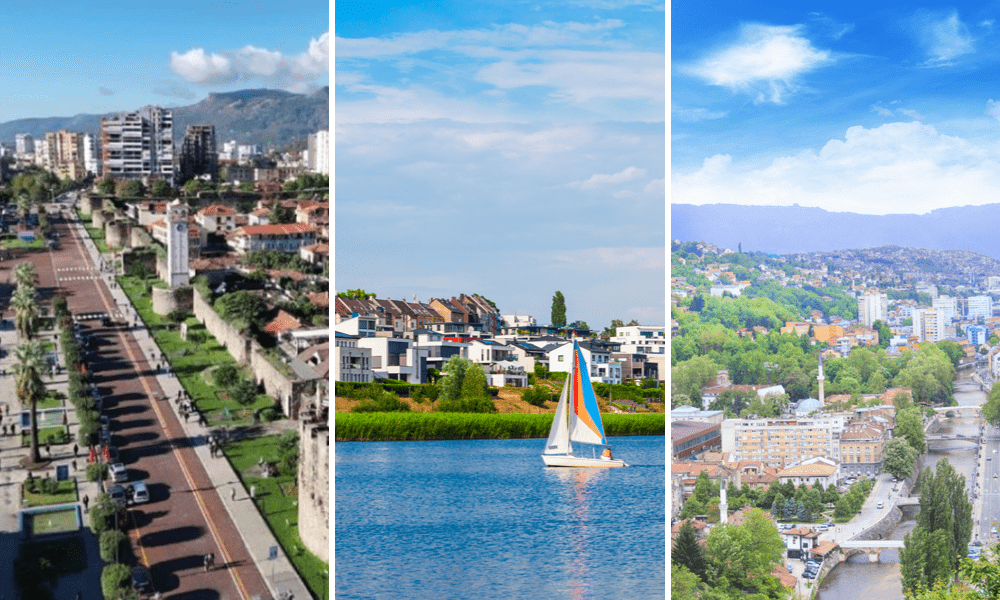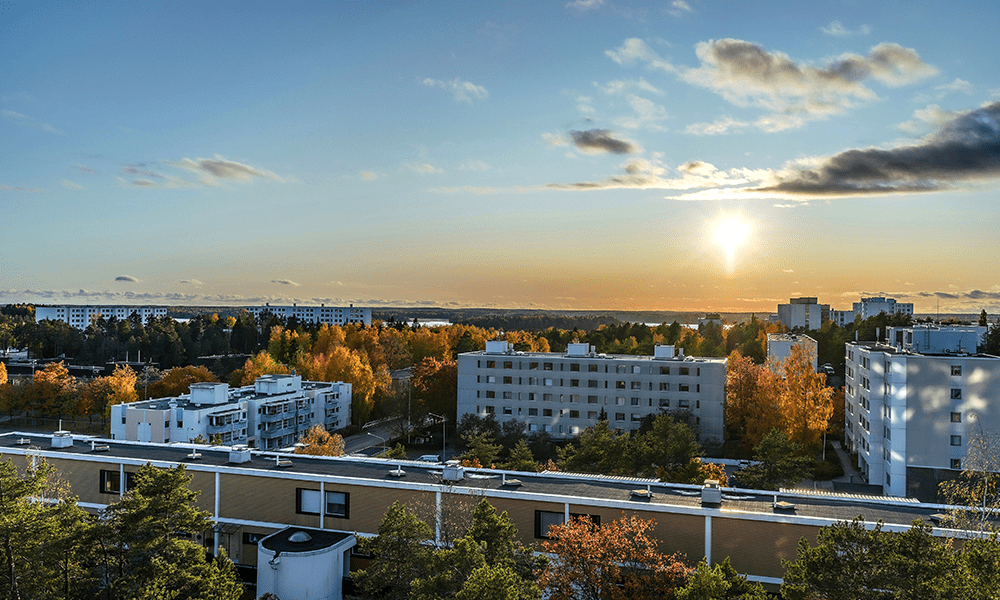“Our slogan – the greenest city in the making – is not just a promise, but an honest acknowledgement that the journey is ongoing. We are not perfect, but we are determined.”
Mayor Valdas Benkunskas may have been speaking for the city of Vilnius when he opened the EU Cities Mission Conference, but the sentiment will be shared far beyond the Lithuanian capital. Hundreds of cities across Europe also know this feeling – of embracing the vulnerability of ambition and accepting there will be wrong turns to any new destination.
Dozens of these cities, either reaching for climate neutrality by 2030 as Mission Cities or following their lead with later targets, were in attendance over three packed days of the flagship EU Cities Mission 2025 conference – the largest Mission conference yet with over 900 registrants representing dozens of cities, academia, finance, business, climate organisations, city networks, European political bodies and more.

From the exchanges and opportunities for collaboration arising from this great event, they all would no doubt agree with Mayor Benkunskas’ follow-up statement:
“Cities are not only where Europeans live – they’re where the future is being shaped.”
Leadership, vision, and the power of political will

In addition to the Mayor of Vilnius’s welcome, the opening session included contributions from many parts of the Mission. From the European Commission, Philippe Froissard, the deputy manager of the EU Cities Mission, traced the Mission’s evolution from a simple but ambitious “concept” in 2019 to the impressive reality of 92 cities who now boast the EU Mission Label – a recognition and testament to the strength and commitment of their plans to reach climate neutrality by 2030.
The Mayor of Leuven and co-chair of the Mission’s Mayors Advisory Group, Mohamed Ridouani, was met with strong applause when calling for greater support at the European level, with the European Investment Bank to be a “European climate bank”.
Emphasising the work of Leuven 2030 on systemic approach to climate policy, Mayor Ridouani encouraged fellow cities to support a position paper from Leuven, on their lessons learnt, as well as answers on how cities can deliver on the priorities it shares with the EU on security, resilience and competitiveness.
The urgent need to move beyond pilot projects and accelerate the replication and scaling of climate solutions across Europe was powerfully illustrated by Olga Kordas, Programme Director at Viable Cities, as she presented the European Declaration to scale up the Cities Mission. Supported by the national platforms Viable Cities and citiES2030, the declaration has already been endorsed by no fewer than 60 Mission Cities.
More politicians from Mission Cities, including Bologna, Bristol, and Guimaraes, joined NetZeroCities’ director, Thomas Osdoba, on stage to share their insights, followed by a keynote video message from another political leader whose profile and prominence on climate and sustainability has few equals on the world stage.
“If you ever doubt for one second that we as human beings have the capacity to muster the sufficient political will to act—please remember,” former US Vice President Al Gore told the conference, “political will is itself a renewable resource.”

Graphic representation of the opening session of the Cities Mission Conference 2025

Local action and collective progress
The first day emphasised the successes of cities’ local action and collaboration, showcased in another plenary session by:
- Polish cities, who shared their transformative journey from competition to a powerful coalition for their climate action plans and the Pilot Activity NEEST project;
- Espoo’s ‘“climate community” model, showing the potential of diverse actors to create supportive funding ecosystems;
- Košice’s inspiring narrative on the power of openness and learning from other European cities, building strong local ecosystems for environmental action and highlighting the importance of investing in planning and people.

Parallel sessions explored diverse strategies for climate action, ranging from innovative financing and public-private partnerships to positive energy districts, mobility solutions, and nature-based approaches. The discussions addressed the crucial roles of citizen engagement via data and inclusive transitions, alongside Climate City Contracts, peer learning opportunities, and NetZeroCities’ tools.
Cities’ great successes as well as their exceptional hard work were lauded throughout, and the support from the EU Cities Mission was underscored by Anna Lisa Bonni, Bologna’s deputy mayor, who acknowledged that the Mission “has brought concrete change” for cities.
Watch the sessions ‘Opening: Celebrating Mission Cities´ Successes’ and ‘Advancing Climate Action Locally: Policy, Investment, and Partnership’ (from 1:24:00)
From labels to leadership: cities scaling up for 2030
On day two, 39 Mission Cities were awarded the EU Mission Label, recognising their commitment and plans to reach climate neutrality by 2030. With 92 cities awarded a Mission Label, this was a European success story, but also a local one.
After inviting the awardees to the stage, EU Cities Mission Manager Patrick Child marked the event as “a great moment” for cities’ collective celebration and shared a strong message of support as their journey continues:
“We – with the NetZeroCities platform, with the Capital Hub, with the dedicated lending facility from the European Investment Bank – we will remain strongly with you in the coming months and years as you now transform these exciting plans into reality.”

Later, a strong sense of regional identity was identified as a key enabler for change in ‘The Baltic View: A Regional Perspective on Energy Transition, Innovation, and Shared Governance’ session, underscoring the critical interplay between national policies and local action. The need for long-term strategic planning, independent of immediate geopolitical pressures, was emphasised, alongside the significant investment required for a successful energy transition.
In many fascinating sessions outside the main hall, participants dove into cutting-edge research, energy systems, climate neutrality tools, city-industry dialogues, funding transition pathways, nature-based solutions, mobility, and new models of shared governance and stakeholder engagement. Cities looked at how data, AI, and peer exchanges can power the transition, and insightful discussions on financing the transition made for an exciting session on public and private finance, cities’ challenges and opportunities, and the role of City Finance Specialists, stakeholders, and cities.
Watch the sessions ‘The Baltic View: A Regional Perspective on Energy Transition, Innovation, and Shared Governance’ – ‘Mission Label Ceremony’ (from 58:11) and ‘Financing the Future’ (from 1:19:38)
Accelerating the transition to shape the future
The final day was opened by Teresa Ribera, the European Commission executive vice-president leading on Europe’s goals in the Green Deal, who thanked cities for their efforts that are “inspiring others across Europe.” The Mission, Ribera said, was not only projects and policies:
“It is about people, it is about citizens, it is about neighbours, it is about you, your teams and your communities – everybody working every single day to improve the air we breathe, to transform the transport systems, to build greener neighbourhoods, and to shape a better future.”
Following sessions and contributions focused on strategic enablers for the 2030 transition, illustrating the critical role of cities as drivers of climate ambition and innovation, backed by strong EU support and the need to scale up climate action beyond pilot testing.

Discussions centred on innovative finance solutions facilitated by the EIB and Climate City Capital Hub, the potential of carbon accounting to drive development, and the expertise through EIB to structure innovative finance packages, including derisking, to create interest for stakeholders.
The importance of inclusive and just transitions, alongside enhanced collaboration and solidarity across European cities, including support for Ukraine, were highlighted, and the day concluded with a strong call for national governments to endorse city-led climate action and a continued focus on citizen engagement to ensure a successful and equitable path towards climate neutrality.
An additional call to action was the Oslo Declaration on “Green Responsible Innovative Procurement” (GRIP), a multi-city project that focuses on supporting European cities in using procurement as a strategic climate action tool. It also seeks to deepen political commitment across cities in the EU Cities Mission network to use procurement to advance climate action across Europe. This has already been adopted by Aachen, Kosice, and Oslo. Find more information about the Olso Declaration and how to sign it.
Watch the sessions ‘What will it take? Strategic enablers for the 2030 transition’, ‘Building bridges across Europe’ (from 54:18) and ‘Closing: From Dialogue to Shared Action’ (from 1:45:10)
Graphic summary of the Cities Mission Conference 2025

Driving change through strategic partnerships

Various partnerships agreements were signed at the conference including: a manifesto between Scalable Cities and NetZeroCities to join forces in accelerating the deployment of Positive Energy Districts in European cities, and a collaboration agreement with the UPPER Horizon Europe Project to strengthen cooperation and unlock the full potential of innovative and sustainable public transport initiatives, as a continuity of the MoU signed with CIVITAS Initiative last year.
Sustainable travel highlights!
All attendees at the EU Cities Missions conference made their own way to Vilnius and several were determined to do so as sustainably as possible, going by bus, train, ferry, and even by bike!
Stefan Synek travelled from Munich to Vilnius by bike! The trip took four days beginning shortly after 4am on Friday with a train to Anklam, a city in northern Germany near the Polish border and the Baltic sea. From there, he began his 168km bike ride to Vilnius. Congratulations to Stefan for his efforts to make a truly sustainable journey to participate in the inspiring EU Cities Mission conference in Vilnius!



The Finnish delegation made their way to the Cities Mission Conference in sustainable style as well. City representatives from Espoo took a night bus to Lithuania, while city advisor Anna Huttunen (Climate-KIC), along with city representatives from Elina Ojala and Aino Kulonen (Lahti), Petri Kero (Lappeenranta), and Venla Kinnunen (Tampere), and Mari Hukkalainen from NetZeroCities consortium partner VTT, took a train, a ferry, and finally a bus!
City representatives from Amsterdam, the Netherlands Enterprise Agency, and NetZeroCities partners TNO arranged their sustainable travel by train and bus to Vilnius from Amsterdam. They were joined en route in Berlin by ICLEI Europe, who begain their own sustainable journey in Freiburg.





